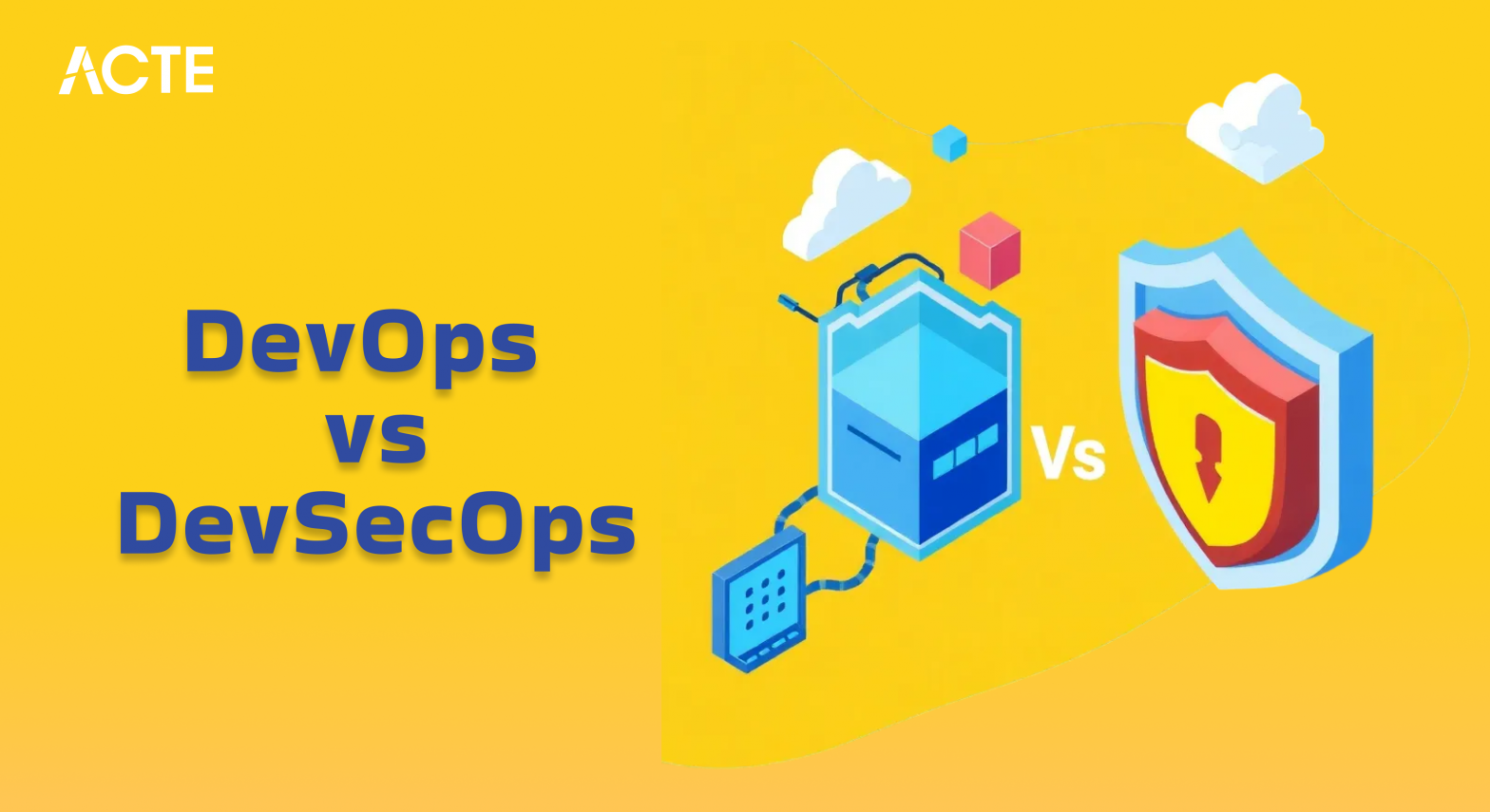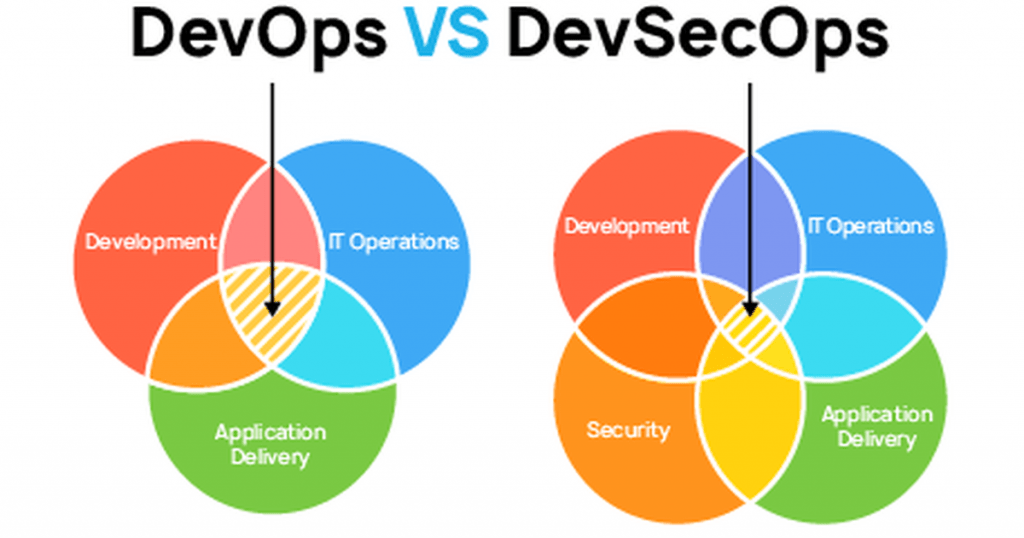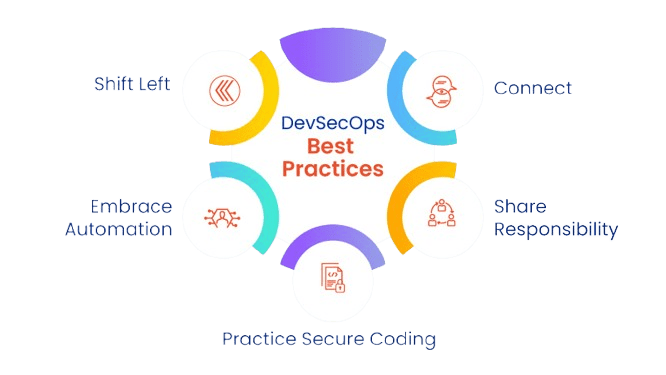
- Introduction to DevOps and DevSecOps
- Key Differences Between DevOps and DevSecOps
- Benefits of DevOps
- Benefits of DevSecOps
- DevOps vs DevSecOps: Security Considerations
- Best Practices for DevOps and DevSecOps
- Conclusion
The blog “DevOps vs DevSecOps: Understanding Security Integration” explores the key differences between DevOps and DevSecOps, focusing on how security is integrated into the development process. While DevOps emphasizes collaboration between development and operations teams to streamline software delivery, DevSecOps goes a step further by incorporating security practices early in the development lifecycle, a concept that can be explored in-depth through Cloud Computing Courses. The blog highlights how DevSecOps shifts security left, ensuring that vulnerabilities are addressed throughout development, rather than just at the end, thus improving both the speed and security of software releases.
Are You Interested in Learning More About Cloud Computing? Sign Up For Our Cloud Computing Online Course Today!
Introduction to DevOps and DevSecOps
In today’s fast-paced software development world companies are constantly looking for ways to accelerate their development and deployment cycles. As a result DevOps has emerged as a powerful methodology that emphasizes collaboration between development and IT operations to create a faster more efficient workflow. DevOps aims to streamline processes, automate repetitive tasks and improve the overall quality and delivery speed of software products. However as security risks and breaches have become a growing concern, a new approach called DevSecOps is gaining traction. This model integrates security directly into the DevOps pipeline, ensuring that security practices are applied throughout the development lifecycle rather than being an afterthought, alongside solutions like Azure Data Box Secure Data Transfer Solution for safe and efficient data handling. With an increasing number of cyber threats and vulnerabilities, DevSecOps emphasizes the importance of embedding security from the start of the development process. This guide will take you through the core concepts of both DevOps and DevSecOps, highlighting their key differences, benefits and the evolving role of security in modern development workflows. By understanding these methodologies, organizations can create more secure, reliable and efficient systems while enhancing collaboration across teams.
Key Differences Between DevOps and DevSecOps
While DevOps and DevSecOps share many similarities, particularly in terms of fostering collaboration and continuous integration/continuous deployment (CI/CD), there is one critical difference that sets them apart security:
-
Focus on Security:
- DevOps primarily focuses on improving the collaboration and automation between development teams and operations teams. While security is an important consideration in DevOps, it is often addressed at the end of the development cycle or as a separate concern.
- DevSecOps takes this a step further by integrating security practices into every phase of the development pipeline, from planning to coding, testing, deployment, and monitoring. The goal of DevSecOps is to ensure that security is built into the application from the very beginning, not as an afterthought. Collaboration with Security Teams:
- In DevOps, security may be handled by a separate security team who may get involved only during later stages of development or in case of security incidents, whereas using Docker Containers on AWS can help integrate security more effectively into the development process.
- In DevSecOps, security is a shared responsibility. Developers IT operations and security teams work together from the start to ensure security is embedded within every aspect of the software development lifecycle.
- In DevOps automation focuses on enhancing the speed and efficiency of the development and deployment processes.
- DevSecOps integrates automated security checks and testing into the CI/CD pipeline, ensuring that vulnerabilities are caught early before they make it into production. Risk Management:
- In DevOps risk management is often reactive only addressing security risks when they are identified during testing or post deployment.
- DevSecOps promotes proactive risk management by ensuring that security risks are anticipated, identified and mitigated throughout the development process.
- Late-Stage Security Checks: In traditional DevOps, security typically becomes a concern at the later stages of development or post-production. While there may be automated tests the emphasis is often on functionality and performance with security being addressed only after the code is deployed.
- External Security Teams: Security in DevOps is often managed by a separate team that steps in at the end of the development process to conduct security audits or vulnerability assessments, while Data Movement and Transformation in Azure Data Factory can help streamline data workflows and improve overall system efficiency. Security in DevSecOps:
- Integrated Security: DevSecOps makes security an integral part of the SDLC. Developers, security professionals, and operations teams all work together to ensure that security is woven into the code, infrastructure, and deployment pipeline from the very beginning.
- Shift-Left Security: This concept refers to identifying and addressing security concerns earlier in the development lifecycle. By doing so, teams can resolve vulnerabilities before they escalate into serious problems.
- Automated Security Testing: In DevSecOps, automated security tools (such as static code analysis and dynamic scanning) are integrated directly into the CI/CD pipeline. This ensures that vulnerabilities are detected and fixed in real-time.
- Automation: Automate repetitive tasks like code testing, integration and deployment. This reduces human error, increases consistency and accelerates release cycles.
- CI/CD Pipelines: Build robust continuous integration and continuous deployment pipelines to streamline the development, testing, and release process.
- Collaboration: Encourage communication between development, operations and QA teams to identify bottlenecks and improve workflows.
- Monitoring and Feedback: Continuously monitor systems for performance, reliability, and issues. Use real-time feedback to iterate and improve your software, leveraging tools like AWS DataSync to streamline data transfer and ensure seamless updates.
- Shift-Left Security: Integrate security testing early in the development lifecycle This minimizes the risk of vulnerabilities reaching production and ensures that security is embedded from the start.
- Automate Security Checks: Use automated security tools to scan for vulnerabilities throughout the CI/CD pipeline. Tools like Static Application Security Testing and Dynamic Application Security Testing can help detect issues early.
- Educate Teams: Make security a shared responsibility. Train developers, operations, and security professionals to understand security risks and best practices.
- Continuous Monitoring and Patching: Keep systems up-to-date with the latest patches and continuously monitor for new vulnerabilities.

Interested in Obtaining Your Cloud Computing Certificate? View The Cloud Computing Online Course Offered By ACTE Right Now!
Benefits of DevOps
Faster Delivery the most notable benefit of DevOps is the ability to accelerate the development and release process. By fostering collaboration between development and operations teams, DevOps eliminates silos and streamlines workflows this leads to faster software releases and quicker feedback loops which help improve responsiveness to market demands. As a result organizations can deliver value to customers more rapidly and remain competitive. Improved Quality Automating testing and integration within the DevOps pipeline ensures that bugs and issues are detected early in the development cycle This reduces the chances of introducing defects into production resulting in higher quality software. Continuous integration and continuous deployment (CI/CD) practices allow for smaller, frequent updates, minimizing the risk of large scale errors. Consequently software is more reliable and stable, enhancing user experience. DevOps fosters a culture of collaboration between development, operations and other stakeholders breaking down traditional silos. Teams work together, share responsibilities, and communicate more effectively, which improves workflow and reduces misunderstandings, as outlined in the Guide to GitLab Features & Setup for Development. This collaborative environment encourages innovation and problem-solving, as everyone is aligned on shared goals. As a result decision-making is faster and projects run more smoothly. Automation in DevOps tools like Jenkins, GitLab, and Kubernetes helps minimize manual tasks and repetitive work streamlining processes. By automating routine operations teams can focus on more valuable activities such as enhancing product features or improving the user experience This increased efficiency not only speeds up development but also reduces the likelihood of human error. Ultimately, it allows for faster and more effective software delivery.
Benefits of DevSecOps
DevSecOps delivers all the advantages of DevOps, with a stronger focus on security. By embedding security practices throughout the software development lifecycle (SDLC), it ensures that vulnerabilities are detected and addressed at every stage, not just in post-production. This proactive approach helps prevent breaches before they occur, reducing the risk of data leaks and costly security incidents, which can be better understood through Cloud Computing Courses. For organizations that must comply with regulatory standards like GDPR or HIPAA, DevSecOps facilitates the implementation of security controls and continuous monitoring for compliance, making it easier to mitigate risks and meet legal requirements. Automated security testing within DevSecOps allows for faster identification of vulnerabilities, reducing the time spent on manual checks and enabling teams to address issues before they become critical. Additionally, addressing security concerns early in the development lifecycle is far less costly than fixing them after deployment, helping organizations save money by reducing the need for extensive remediation efforts and expensive post-production fixes.
Are You Considering Pursuing a Master’s Degree in Cloud Computing? Enroll in the Cloud Computing Masters Course Today!
DevOps vs DevSecOps: Security Considerations
In both DevOps and DevSecOps security plays a crucial role but the approach to security is quite different. While DevOps focuses on speeding up development and deployment, DevSecOps integrates security measures directly into the entire development lifecycle ensuring vulnerabilities are addressed early.
Security in DevOps:Best Practices for DevOps and DevSecOps:
Both DevOps and DevSecOps require a set of best practices to ensure success. Here are some tips for implementing both methodologies effectively. Foster a collaborative culture between development, operations and security teams to ensure smooth and secure workflows:
DevOps Best Practices:
Preparing for a Cloud Computing Job Interview? Check Out Our Blog on Cloud Computing Interview Questions & Answer
Conclusion
The decision between DevOps and DevSecOps ultimately depends on the nature of your projects, the industry you operate in, and your organization’s security needs. DevOps is ideal for teams looking to speed up development cycles, improve collaboration and automate repetitive tasks. Its well suited for organizations where security concerns can be handled separately, or when the risk of vulnerabilities is low. DevSecOps, on the other hand, is necessary for organizations that require robust security measures, especially in industries with strict compliance and regulatory requirements, which can be further explored through Cloud Computing Courses. If you handle sensitive data or need to minimize security risks, adopting DevSecOps is a strategic choice. Both DevOps and DevSecOps bring significant improvements to the software development process, but DevSecOps takes security to the next level, ensuring that applications are secure from the very start. With the increasing focus on data privacy and security, adopting DevSecOps is becoming a best practice for organizations aiming for long-term success and risk mitigation.





